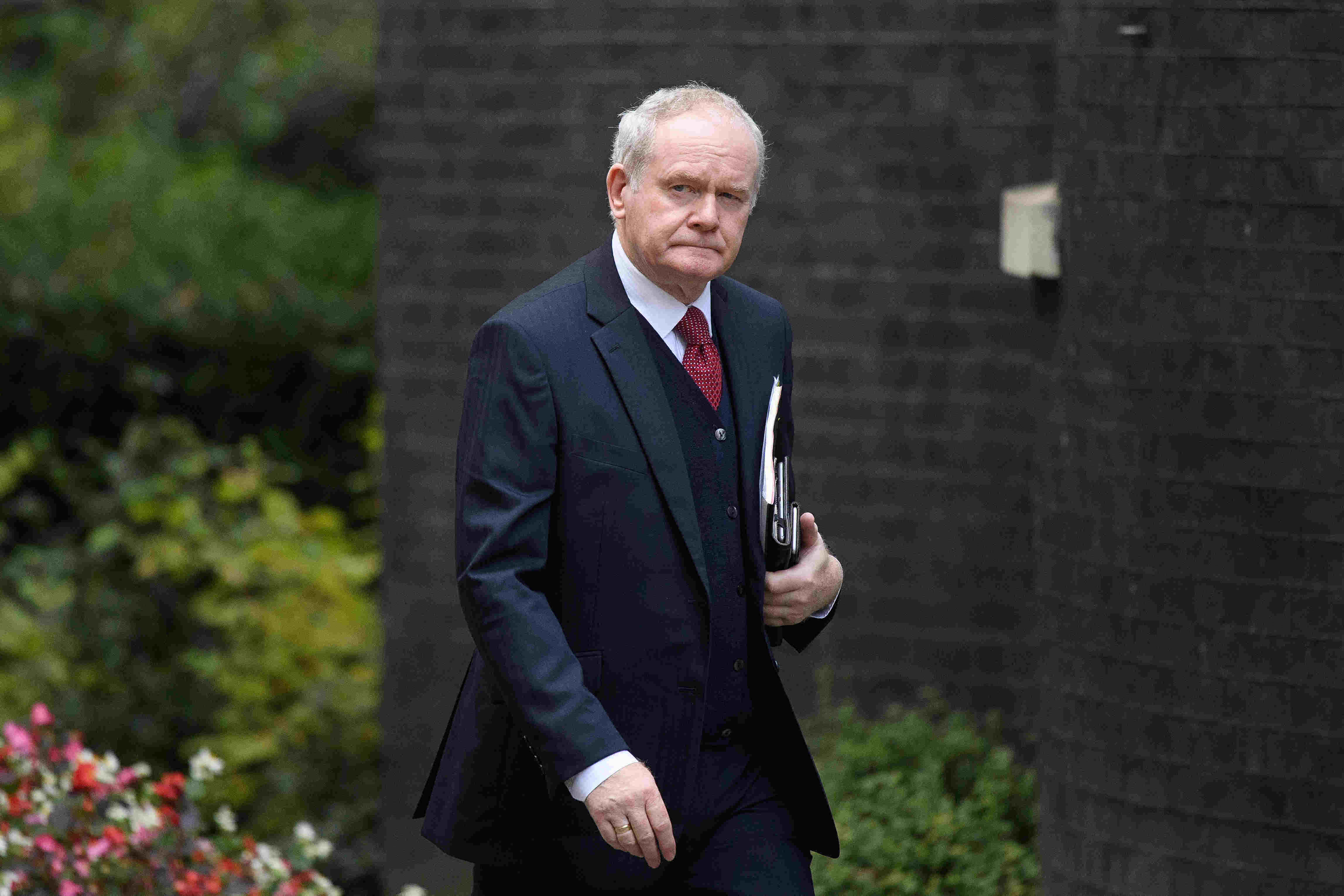
Irisgate shook Northern Ireland in 2010, revealing a web of scandal involving Iris Robinson, wife of then-First Minister Peter Robinson. The controversy erupted when Iris's affair with 19-year-old Kirk McCambley came to light, along with her financial dealings to help him start a restaurant. This breach of ethical standards led to intense media scrutiny, resignations, and investigations. The scandal not only tarnished the Robinsons' reputations but also cast a shadow over the Democratic Unionist Party (DUP). Public trust wavered, and calls for greater transparency in politics grew louder. Let's delve into 20 key facts that define this political earthquake.
The Scandal Unfolds
The Irisgate scandal shook Northern Ireland in 2010, revealing a web of deceit, financial misconduct, and ethical breaches. Here are the key facts that paint a detailed picture of this political drama.
-
Iris Robinson's Affair: Iris Robinson, wife of Northern Ireland's First Minister Peter Robinson, had an affair with 19-year-old Kirk McCambley. This relationship was exposed in a BBC Northern Ireland documentary in January 2010.
-
Financial Involvement: Iris secured £50,000 in loans from property developers Fred Fraser and Ken Campbell to help McCambley start his restaurant, the Lock Keeper's Inn in South Belfast.
-
Undeclared Interest: Despite being on the Castlereagh Borough Council, which leased the restaurant premises to McCambley, Iris did not declare her financial interest. This was a clear breach of ethical standards.
Media Exposure and Public Reaction
The scandal's exposure led to a media frenzy and public outrage, questioning the integrity of the involved parties.
-
BBC Spotlight Investigation: The BBC Northern Ireland's Spotlight program aired an episode on January 8, 2010, detailing Iris Robinson's affair and financial dealings. It revealed that Iris had solicited the money for McCambley rather than it being a spontaneous gift.
-
Public Reaction: The revelations caused widespread outrage, dominating headlines and sparking calls for accountability. Many questioned the ethical standards of the Democratic Unionist Party (DUP) and its leadership.
-
Iris Robinson's Resignation: Iris resigned from her seats in both Westminster and the Northern Ireland Assembly, citing mental health reasons. She also announced her retirement from politics.
The Fallout for Peter Robinson
Peter Robinson, Northern Ireland's First Minister, faced intense scrutiny and political consequences due to his wife's actions.
-
Peter Robinson's Role: Initially, Peter claimed ignorance of the transactions but later admitted to knowing some aspects of the affair. His reputation took a significant hit.
-
Peter Robinson's Resignation: Peter stepped down as First Minister for six weeks to address claims related to his wife's financial dealings. Arlene Foster temporarily replaced him.
Investigations and Inquiries
Multiple investigations and inquiries were launched to uncover the full extent of the scandal and determine any legal or ethical breaches.
-
Police Investigation: The Police Service of Northern Ireland (PSNI) launched an investigation into Iris Robinson's financial affairs, interviewing key figures involved in the scandal.
-
Independent Inquiry: Castlereagh Borough Council commissioned an independent investigation by Deloitte. The report, released in May 2011, cleared Iris Robinson of wrongdoing in awarding the contract to McCambley.
-
Standards and Privileges Enquiry: The Northern Ireland Assembly ordered an enquiry into the conduct of Peter and Iris Robinson. Delayed by legal challenges, it eventually reported in November 2014, finding serious ethical breaches but no criminal charges.
Timeline of Events
Key dates and events provide a chronological framework for understanding the scandal's progression.
-
February 26, 2008: Kirk McCambley's father, Billy, dies. Billy was involved in the initial stages of the restaurant venture.
-
March 1, 2009: Iris Robinson attempts suicide, a significant part of the public narrative surrounding her mental health and the scandal.
-
January 8, 2010: The BBC Spotlight program airs its investigation into Iris Robinson's affair and financial dealings.
-
January 11, 2010: Peter Robinson steps down as First Minister for six weeks.
-
January 21, 2010: The PSNI announces its investigation into Iris Robinson's financial affairs.
-
September 19, 2010: Iris Robinson returns to Northern Ireland after receiving psychiatric treatment in London.
-
June 25, 2010: It becomes public that Robinson had been interviewed as part of a police investigation over money she obtained from two developers.
-
May 26, 2011: The DUP announces the findings of an independent investigation clearing Iris Robinson of wrongdoing.
Legacy and Impact
The scandal left a lasting impact on Northern Ireland's political landscape, highlighting the need for greater transparency and ethical standards.
- Legacy of Irisgate: The scandal led to reforms aimed at improving ethical standards within Northern Ireland's political system. It damaged public trust in politicians, particularly those associated with conservative values, and underscored the importance of media scrutiny in holding leaders accountable.
The Impact of Irisgate
Irisgate shook Northern Ireland's political landscape in 2010. The scandal, involving Iris Robinson's affair and financial misconduct, led to her resignation and a temporary step-down by Peter Robinson. Public trust in the Democratic Unionist Party (DUP) took a hit, highlighting the need for better ethical standards. Despite extensive investigations, no criminal charges were filed, but the scandal exposed significant ethical breaches. Media coverage played a crucial role in bringing the details to light, emphasizing the importance of transparency and accountability in politics. The legacy of Irisgate continues to influence political discourse, serving as a reminder of the consequences of unchecked power. Reforms aimed at improving ethical standards followed, but the damage to public trust remains a cautionary tale for politicians everywhere.
Was this page helpful?
Our commitment to delivering trustworthy and engaging content is at the heart of what we do. Each fact on our site is contributed by real users like you, bringing a wealth of diverse insights and information. To ensure the highest standards of accuracy and reliability, our dedicated editors meticulously review each submission. This process guarantees that the facts we share are not only fascinating but also credible. Trust in our commitment to quality and authenticity as you explore and learn with us.


